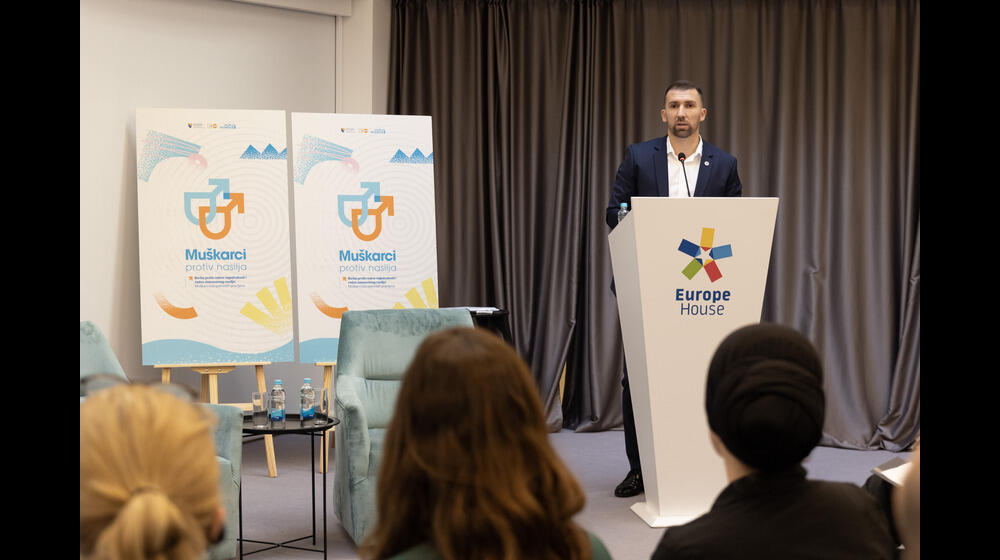Sarajevo, 12 November 2024 – Men's support is essential in the fight against gender-based violence and the achievement of gender equality, was the key message from the “Men Against Violence” event held today in Sarajevo. Organized by the Federal Ministry of Labor and Social Policy, UNFPA, and UN Women, the event brought together representatives from the government, international community, activists, artists, musicians, actors, journalists, influencers, and athletes to initiate a dialogue on the role of men as allies in preventing gender-based violence and advancing gender equality. A significant moment was the signing of a statement in which key leaders reaffirmed their commitment to this cause.
Violence against women and girls remains a serious issue in Bosnia and Herzegovina. Nearly half of women (48%) have experienced some form of violence, including partner violence, stalking, and sexual harassment, since the age of 15, according to a 2019 OSCE study.
“The legislative framework must be rooted in principles that benefit society, especially for women who are pillars of social balance and stability. Our fight against gender-based violence involves tackling deeply ingrained stereotypes and social norms that perpetuate it. The Federal Ministry of Labor and Social Policy, in collaboration with partners, including UN agencies and safe houses in the Federation of Bosnia and Herzegovina, continuously works on raising awareness about the importance of changing mentalities and reducing stereotypical beliefs and actions. We are fully committed to doing everything within our power to create a fair and safe society where equality is the foundation for development and justice for all”, said Adnan Delić, Minister of Labor and Social Policy of FBiH.
“It is impossible to end gender-based violence and promote equality without the active inclusion of men and young men, who should be genuine agents of change. As a union based on shared values and deeply committed to advancing gender equality and human rights, the EU is here to help Bosnia and Herzegovina overcome barriers, challenge stereotypes, and build a society in which every individual can realize their potential free from violence, oppression, and discrimination. The EU continues its long-standing support for BiH through various projects dedicated to both structural issues and the specific challenges facing women, girls, and other vulnerable communities. It is important that we join forces and empower men to be mentors and role models who advocate respect, equality, and empathy in their families, communities, and workplaces”, highlighted Adebayo Babajide, Deputy Head of the EU Delegation to BiH.
UN Women and UNFPA representatives, Jo-Ann Bishop and Justine Coulson, emphasized the importance of men's engagement in these processes: “The United Nations, through the UN Women and UNFPA agencies, is dedicated to promoting gender equality and involving men as key partners in preventing violence against women and girls. Gender-based violence cannot be ended without the active participation and inclusion of men. Men, young men, and boys must become allies and lead the change in norms and attitudes that support violence and gender inequality. This engagement is essential for achieving sustainable social change and creating a safe environment for all.”
Through interactive discussions, participants exchanged examples and recommendations for further engaging men in preventing gender-based violence. These activities contribute to the development of concrete steps to be implemented in future initiatives and programs in Bosnia and Herzegovina.


